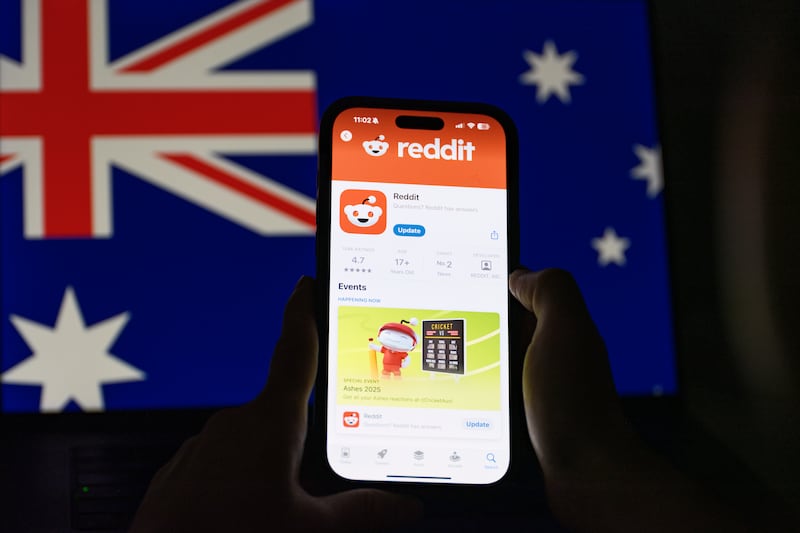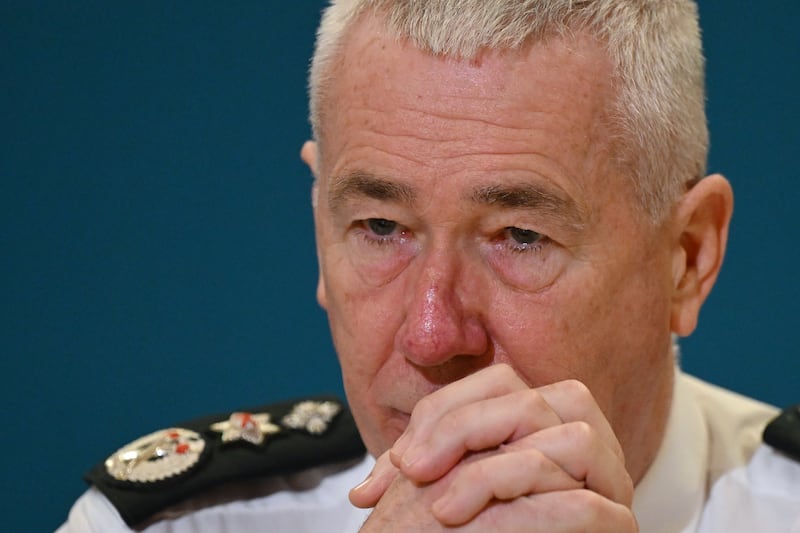The bad news – the worst possible news – was delivered over the telephone. My brother Stephen rang on that Sunday in September 2018, which was already unusual as we don’t normally speak on the phone. It was more unusual still when he said that he was calling from the family home in Reading. But the next three words he said – “Mum’s gone missing” – went so far out of the ordinary that I had no idea what to say. I went cold. Then hot. I could hardly breathe and I had no idea what to do with myself. When Steve added the words, “she left a note”, I knew exactly what had happened.
Mum and I had spoken the day before, which added to the shock. There was disbelief that such a positive person could have taken her own life. And a pain kept coming back to me whenever I awoke – often in the darkened, disorienting hours of the middle of the night – and didn’t let go until I finally managed to get to sleep again at the far end of the day. Two thoughts in particular brought the deepest anguish: What could I have done in order for this not to have happened? And how was it possible that I would neither see nor hear her ever again?
On top of this was the shame, of which I am ashamed now, I felt about the way she’d gone. Suicide was something that happened in other people’s families, not in my own. I found myself choosing whether to tell the truth of how she’d died with every person I had to tell, a constant game of second-guessing what someone might think about her, and by association about me. I found the decisions about which of these multiple and variable untruths to use absolutely exhausting. One more exhaustion on top of all the other exhaustions of mourning.
When my mum died, I was 49 and living in a spiritual community at Findhorn in northeast Scotland, a place where the response to the question “How are you?” was almost never, “I’m fine. How are you?”. Instead, people actually told you how they were and it was in this atmosphere that I had a series of incredible, heart-opening, belief-altering conversations that were sometimes so intense that I had to retreat to my home and go back to bed. There were, of course, others there who didn’t really want to hear about it. And there were still others who used what had happened as their opportunity to tell me either about their times of suicidal ideation, or of their experiences of losing someone to suicide.
RM Block
It was a great surprise to me that on the day after Mum’s death, I had the utterly counterintuitive thought: well done. I didn’t want to think that. She hadn’t done well. She’d disappointed us all. She’d chosen to leave, to give up on her life, to give up on her role in regard to me: she’d had enough of being my mother. How could she? How could she do that? How could she do that to me? But alongside such thoughts, ones of the well done sort kept coming. Quicker and more often too, until I came to realise that it was selfishness for me to want my poor, suffering mother around still, just so that I would not have to deal with her loss.
I came to see that she had had a good life, had achieved so much that she’d wanted to, had fitted in so much. The fact that she’d spent the last year and a bit of her life dealing with various pains helped me to see that she had, in fact, made what seemed to her like a completely rational decision. And being the determined person she was – a character trait that I had always admired in her in other circumstances – she ended it all.
What followed was a series of thank yous to my mum: Thank you for choosing Dad. Thank you for giving me life. Thank you for your unconditional love. I noted these down, on old envelopes, on scraps of paper and in notebooks. Most days at least one more thank you would drop in and these feelings of gratitude softened the grief I was beginning to allow, gently bringing it forth with the help of the therapist I had been seeing for some years now; incredibly, he disclosed that he’d lost his mother to suicide as well.
As time passed, there were all the standard postmortem staging posts: the funeral, the interment of the ashes, the memorial service, and in Mum’s case, because of death by suicide, an inquest too. Each of them helped me further to accept what had happened, but I still felt I needed something more, something all of my own. So I created a ritual. I gathered all the various pieces of paper with thank yous and counted them up: there were by now more than 70. I wrote out more of them until I got to 78 – Mum’s age when she died – and over three days around the winter solstice, I used them and the river Findhorn, the sea into which it ran and the cleansing power of fire, to honour not just her life, but her death, and the way of it, too.

At the time, I was between writing projects and decided to expand each of the thank yous into a short written piece. Interweaving the background of what had happened to me since her death, I soon had a memoir. Thinking it would be a great help for others, I looked for a literary agent who would help me get it out into the world and I met one block after another. Desperate, I took the very unusual-for-me step of seeing a psychic. She told me that my guides and hers on the other side said that I wasn’t going to get Mum’s story out into the world in the way that I imagined. Told me it was time to stop hiding behind the computer screen and find a way to deliver it in-person. Face to face. On a stage.
I freaked out.
Hiding behind a computer screen was why I had become a writer. And yet the day after seeing the psychic, with a flush of blood to my cheeks, I remembered that 30 years earlier, at just 19 years old, I had wanted to become an actor and had three increasingly hopeless auditions culminating in one where I became catatonic in the middle of a dance studio as Lycra and leg-warmered theatre-school kids whirled and jetéed with great enthusiasm all around me.
[ A teenage suicide in the US might prove a tipping point for AI regulationOpens in new window ]
I started by booking a couple of venues, a church in Brighton and St Stephen Walbrook, a Wren church in the City of London, in order to hold readings for friends of both mine and my mother’s. The reading in Brighton came first, and by an(other) incredible coincidence, when I went up to London, to the church where the Samaritans was founded, I realised that I had unwittingly booked it on the third anniversary of Mum’s death. The readings went well, but I realised that replaced the computer screen behind which I hid with my stapled sheaf of papers.
I needed to find a way to put the papers down and a Google search revealed that Emerson College, less than an hour’s drive from where I was now living in the south of England, was running a four-weekend autobiographical storytelling course called Bring Your Stories to Life. As I learned the techniques that would enable me to not rely on reading from printed material, a kind of life came to the piece that had been lacking, and by the end of the last weekend, I was doing it from memory and had become hooked on performing. I signed up for their three-month residential storytelling course during which I worked and played with 15 other nascent storytellers from around the world, developing what I had written into a nearly hour-long one man show.
While still flushed with enthusiasm, I booked a venue and accommodation for a five-show run at Edinburgh Fringe. This took me to the next block: promoting the show. I tried all manner of ways to do this – emails, attempts to get write ups, Fringe website listings – while assiduously avoiding the one that everyone was telling me had to be done: flyering. I resisted doing so until the last moment. The day before my first performance, with ticket sales for all five shows only just into double figures, I hit the street. Approaching the first few people was terrifying, but once I realised that it was nothing other than a series of conversations with people on a subject about which I was absolutely passionate, I found that I didn’t want to stop. So obsessed did I become with these interactions that I had to set an alarm on my phone in order to get back to the venue in time to prepare for each afternoon’s performance.
My mother’s death itself and the creation and performance of Seventy-Eight Thank Yous has led me to face and embrace my own mortality
Since Edinburgh, I have taken the show out to many different places – to St Christopher’s Hospice in south London, to the York Festival of Ideas and, as part of this year’s Dying Matters Week, to a women-run funeral directors in Brighton. Wherever I go, I love sharing the story of Mum’s ordinary life and extraordinary death, and seeing how it touches others; one of the audience members at Brighton posted feedback saying: “I expected this performance to be traumatic and depressing, but it was strangely joyous and uplifting.”
Both my mother’s death itself and the creation and performance of Seventy-Eight Thank Yous has led me to face and embrace my own mortality. I now have a large box file in plain sight in my sittingroom, labelled James’s Death. It has my will in it, along with full instructions about every aspect of what I would like to come after. I now very happily talk to anyone about death, dying and suicide, and I have had such conversations after performances, on trains, at classes and groups I’m part of, in fact, everywhere where I might get asked that standard first question, “So, what do you do?”
“Well, I perform a piece about my mother’s death by suicide.”
And while the response to that is sometimes a swift change of subject, more often than you might imagine, a conversation opens up about someone else’s experience of suicide. Many, many people, it seems, are aching to talk about it. And outlandish as it might seem, such conversations make me feel more alive than ever. Thank you, Mum.
James Pretlove is a writer and performer. Seventy-Eight Thank Yous will be performed on Saturday, October 18th at the Swift Lecture Theatre, Trinity College at 11.30am and at the United Arts Club at 7.30pm; tickets €15 (€10 for students at the Trinity performance) via www.jamespretlove.com
The Samaritans can be contacted on freephone: 116 123 or email:jo@samaritans.ie


















